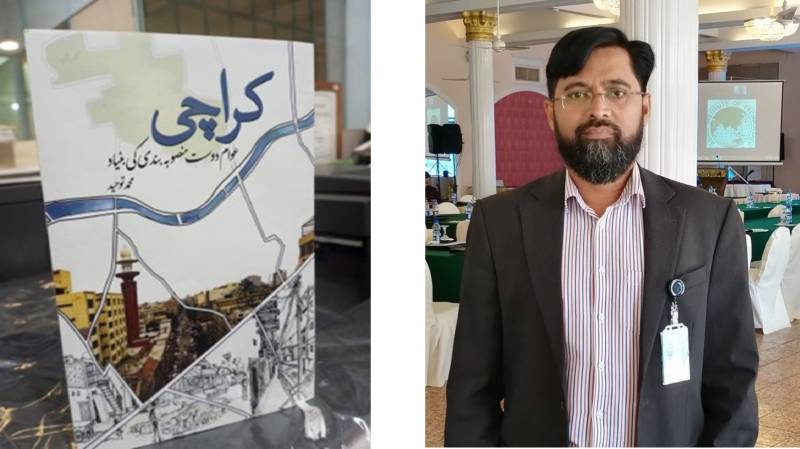
In the bustling and ever-evolving cityscape of Karachi, a metropolis that pulsates with life, challenges and untold stories, Muhammad Toheed emerges not just as an observer but as a keen participant, weaving through its many layers, exploring its depths, and bringing forth the narratives that often go unnoticed. The Urdu book, Karachi — Awam Dost Mansooba Bandi Ki Bunyad (Karachi — Basis of Peoples' Friendly City Planning) is not merely a compilation of articles but a testament to Toheed’s unwavering commitment to urban planning, social justice, and the myriad issues that envelop the city.
Toheed, an urban planner, researcher and educator, navigates through the complexities of urban issues, particularly in Karachi, with a lens that captures not only the problems but also envisions pragmatic solutions. His writings, a confluence of meticulous research, fieldwork, and personal interactions, delve into modern world issues such as climate change, the impact of pandemics, the burgeoning problems of slums, government negligence, and the repercussions of court decisions that have displaced thousands.
This book, a mirror reflecting the multifaceted issues of Karachi, brings to light Toheed’s activism and his hands-on approach to understanding the city’s problems. He doesn’t confine himself to the comfort of his study, relying on media reports; instead, he ventures into the slums, converses with the people, and becomes a part of their narrative, thereby enriching his writings with lived experiences and ground realities.
Toheed’s association with various organisations, his role in managing mapping projects, and his work with disadvantaged communities across Karachi, have not only provided him with a deeper insight into urban issues but also enabled him to play a pivotal role in highlighting and addressing them. His research extends to various facets of urban life, including land issues, evictions, and the socio-economic dynamics of informal settlements.
The articles compiled in this book, each a chapter narrating a different aspect of the city’s challenges and potentials, are not just critiques but also propose solutions, providing a roadmap that could guide policy-making, urban planning, and social reforms. From discussing the Karachi Master Plan 2047 to exploring the intricacies of urban planning and governance, Toheed lays down a foundation for a people-friendly planning framework, urging for a paradigm that is inclusive, sustainable, and cognizant of the socio-economic realities of the city.
As you leaf through the pages of this book, you will embark on a journey through Karachi’s streets, witnessing its struggles, resonating with its people, and contemplating the solutions proposed by Toheed. This is not just a book; it is an invitation to partake in a dialogue, to understand the complexities of urban planning, and to become a part of a movement that aspires to create cities that are not just structures of brick and mortar but are inclusive, just, and reflective of the aspirations of their inhabitants.
In Karachi — Awam Dost Mansooba Bandi Ki Bunyad, Toheed has not just penned down articles; he has extended an arm, inviting us to join hands in understanding, empathising, and working towards crafting a future where urban planning is not a distant concept discussed in boardrooms but a collaborative effort that roots itself in the very heart of the community it aims to serve.

